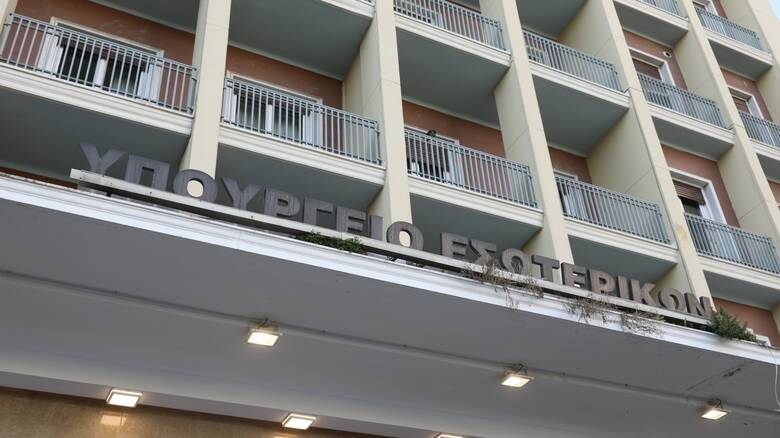What exactly does the new regulation provide:
Regarding the properties, the new arrangement covers debts from Real Estate Tax (TAP), municipal cleaning and lighting fees, Municipal Tax on Electrified Premises, various Potential Municipal Fees and the related surcharges and fines.
Today in practice the O.T.A. claim and collect retroactive debts of the years 2009 to 2022, i.e. debts of 14 years. This limitation period will increase every year by one year, until it reaches 20 years.
POMIDA has requested to reinstate in effect for these debts the 5-year statute of limitations, which already applies to all debts to the State. So far this has only been accepted in terms of obtaining a TAP certificate. With this regulation, the limitation period is gradually reduced to 10 years for the oldest debts before 2013, to 8 years for debts before 2018 and then to 5 years for debts from 1.1.2018 onwards. Specifically, the proposed arrangement provides for the following:
Debts for the years 2009 – 2012: They are permanently deleted and are not searched for. Debts written off under paragraph a include those that were subsequently settled and have not yet been paid. However, amounts that have already been paid are not refundable.
Debts for years 2013-2017: Can be sought, confirmed and collected for two years from the entry into force of the law. Then they become statute-barred.
Debts from 2018 onwards and future debts: Municipalities can confirm in cash all kinds of amounts owed, from any source, which becomes receivable income, within an amortization period of five (5) years, starting the following year from the origination of the debt, After the expiry of this period, they are time-barred.
The plan under consultation does not include provisions for the declaration of unpowered and undeclared real estate surfaces, and the limitation of fines and surcharges to 50%, which POMIDA has requested.
> The legislative initiative of the Ministry of the Interior, under the title: “Innovation System in the public sector – Regulations General Secretariat of Human Resources Public Sector – Arrangements for the operation of the OTAs. first and second degree and decentralized administrations and for the well-being of companion animals – Other urgent regulations of the Ministry of the Interior”. Given the importance of this initiative, I invite you to participate in the public electronic consultation, expressing your views and comments on the relevant regulations.
The consultation will end on 14.2.2023.
The Minister of the Interior
MAVROUDIS VORIDIS
The main provision states the following:
Article 26 Certification and collection of municipal revenues – Addition of Article 166A to Law 3463/2006
After article 166 of the Code of Municipalities and Communities (law 3463/2006, A΄ 114) article 166A is added, as follows:
“Article 166A
Confirmation and collection of revenue
1. Municipalities confirm in cash all amounts owed, from any source, which become receivables, within a five (5) year amortization period, starting the following year from the origination of the debt, except if shorter deadlines are defined by special provisions. In order to accurately determine the debtors and the amount due, the municipalities, in addition to using their registers, may request the name of the natural person or the name of the legal person or legal entity, the electronic contact address, the tax registration number and the address of residence or head office, from any authority of the General Government within the meaning of paragraph b of paragraph 1 of article 14 of Law 4270/2014 (A’ 143), which is obliged to provide the requested information within one (1 ) month, in any convenient way. Failure to respond within the time limit to the request of the municipality in accordance with the second paragraph constitutes a reason for disciplinary control by the competent bodies of the General Government. their burden is the debts from the origination of their obligation and the fines attributed to them on a case-by-case basis for the debts of the last five (5) years.
3. The municipalities ensure the collection of the certified revenues within a depreciation period of five (5) of years, starting from the end of the year of their financial statement.
4. For the amounts due that were made known to the municipality in any legal way but were not confirmed within the deadline of par. 1, as well as for the uncollected revenues after the end of the period of par. 3, a report is drawn up, under the responsibility of the Head of the Financial Service, on the reasons for non-certification and non-collection. The report is submitted, within the first month of each year, to the competent Department of the Ministry of the Interior and is sent to the competent level of the Court of Auditors, which acts in accordance with Law 4820/2021 (A’ 130).
The transitional provision states the following:
1.a. Subject to paragraphs 1 and 2 of article 53, debts to the municipalities, for any reason, that arose before 31.12.2012 are deleted and not sought.
b. Debts written off under paragraph a include those that were subsequently settled. Amounts that have already been paid are not refundable.
2. Debts to municipalities, from any cause, incurred from 1.1.2013 until 31.12.2017, if in accordance with the provisions repealed by article 53, they could to be sought – ascertained and collected, shall continue to be sought, ascertained and collected, for two (2) years from the effective date hereof.
What does the “Analysis of the Consequences of Regulation” of s.n.
OTAs relating to the return of taxes, fees, rights and contributions and resulting from the debtors not submitting the necessary information for their attestation or submitting inaccurate or incomplete information or wrongly attested debts, create confusion and problems in the services of In addition, the burden and surprise of citizens who are asked even 23 years later to pay amounts for a fine that they may have paid without having kept the proof after such a long time, burdening the courts with many unprovable and limited important appeals, conflicts and constant tension between municipal authorities, collective bodies and supervisory authorities and ultimately legal uncertainty, as noted in the January 2018 “special report of the Citizen, on “Revenue of Municipalities and the Rule of Law”. assessed provision, it is proposed to deal with the issue in a unified manner by establishing a regulation that defines specifically and only for municipalities, a) the conditions for revenue certification, b) a cash certification period (five years from the following year of the certification in a broad sense) and c) single, five-year collection period starting from the following year of the cash receipt. This shortening of the collection period becomes necessary, due to the modern perceptions of rapid settlement of financial outstandings, the wide possibilities of using digital applications, which facilitate transactions, and is in harmony with the more general logic that prevails for a five-year period in all debts to the state. Finally, the strengthening of the system for monitoring the revenue collection of the municipalities, both by the Ministry of the Interior and by the Court of Auditors.”






